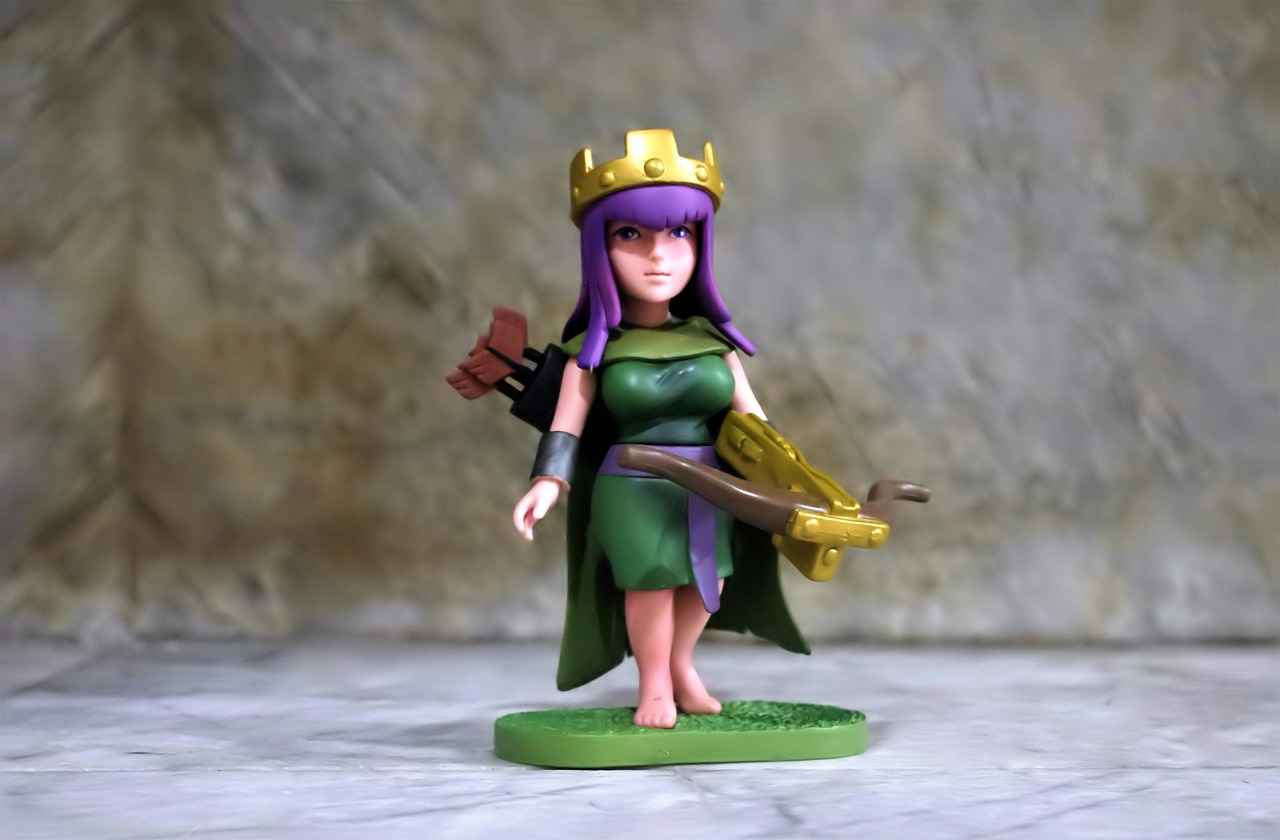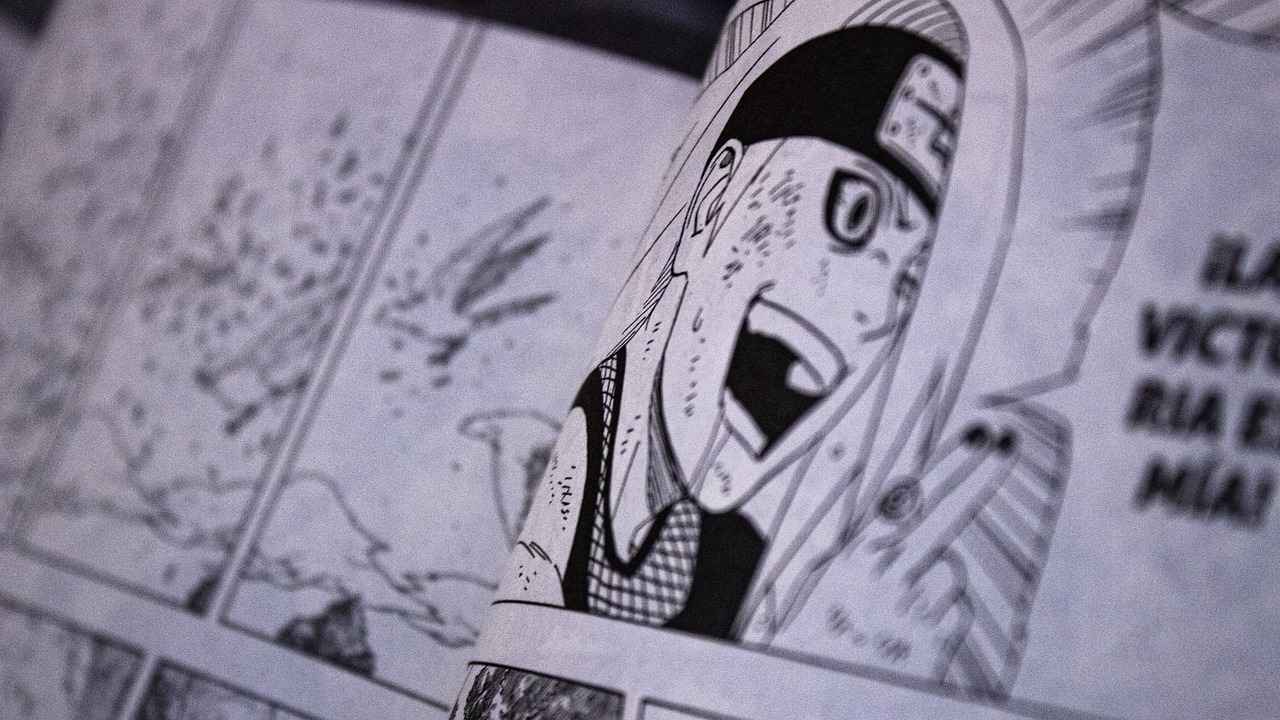This article delves into the profound implications of Itachi Uchiha’s sacrifice in Naruto, examining his character motivations, emotional impact, and the narrative significance of his choices throughout the series. Itachi’s journey is not just a tale of tragedy; it is a complex narrative that challenges the notions of heroism and sacrifice.
The Complexity of Itachi’s Character
Itachi Uchiha is a multifaceted character whose motivations and actions are often misunderstood. Born into the prestigious Uchiha clan, Itachi was a prodigy, excelling in his skills from a young age. However, the tragic circumstances surrounding his family and village shaped his decisions, leading to a life filled with burdens and sacrifices.
The Uchiha Clan Massacre: A Tragic Choice
The Uchiha Clan Massacre stands as a pivotal moment in Naruto. Itachi was faced with an impossible choice: to protect his village or to save his family. This section analyzes the events leading up to the massacre, highlighting the moral dilemmas Itachi faced and the consequences of his actions.
Itachi’s Burden of Guilt
Itachi carries immense guilt for his actions, which profoundly affects his character. This guilt manifests in his relationships, particularly with his younger brother, Sasuke. The emotional turmoil Itachi experiences is evident throughout the series, shaping his decisions and interactions.
The Impact on Sasuke
Sasuke’s relationship with Itachi is central to the narrative. Itachi’s sacrifice significantly shapes Sasuke’s character development, driving him towards both vengeance and understanding. This relationship highlights the complexities of familial bonds and the impact of sacrifice on personal growth.
Itachi’s Legacy in the Shinobi World
Itachi’s sacrifice leaves a lasting impact on the shinobi world. His actions influence subsequent events and characters, reinforcing his role as a tragic hero. Itachi’s legacy serves as a reminder of the weight of choices and the pursuit of peace.
Redemption and Understanding
Itachi’s story arc culminates in themes of redemption and understanding. His sacrifice ultimately leads to a greater awareness of peace and the true nature of sacrifice within the series, inviting viewers to reflect on the complexities of morality.
The Emotional Weight of Itachi’s Sacrifice
Itachi’s sacrifice resonates deeply with fans, evoking strong emotions. The emotional weight of his choices serves as a catalyst for discussions about love, sacrifice, and the human experience.
Fan Reactions and Interpretations
The fanbase has diverse interpretations of Itachi’s sacrifice, showcasing the character’s profound impact on the community. Various fan theories and emotional responses highlight the enduring legacy of Itachi Uchiha.
Conclusion: Itachi’s Enduring Legacy
In conclusion, Itachi Uchiha’s sacrifice is a powerful testament to the themes of love, sacrifice, and redemption in Naruto. His legacy continues to inspire discussions about morality and the complexities of human emotions, ensuring that his story remains relevant in the hearts of fans.

The Complexity of Itachi’s Character
Itachi Uchiha is one of the most complex characters in the Naruto series, often misunderstood and misjudged by both his peers and the audience. His journey is marked by tragedy, sacrifice, and an unwavering commitment to his ideals. To fully appreciate Itachi’s character, we must delve into his background, skills, and the harrowing circumstances that influenced his choices.
- Background: Born into the prestigious Uchiha clan, Itachi was a prodigy, showing exceptional talent from an early age. His early life was filled with expectations and pressures that shaped his worldview.
- Skills: As a shinobi, Itachi possessed remarkable abilities, including mastery of the Sharingan and various powerful jutsu. His skills made him a formidable opponent, but also placed a heavy burden on his shoulders.
- Tragic Circumstances: Itachi’s decisions were heavily influenced by the political tensions within the Hidden Leaf Village. The Uchiha clan’s desire for power led to a tragic choice that would haunt him for the rest of his life.
Itachi’s motivations are deeply rooted in his love for his younger brother, Sasuke. He believed that by taking on the burden of hatred, he could protect Sasuke from the darker aspects of their clan’s legacy. This selfless act of sacrifice is what makes Itachi a tragic hero, as he chose to be seen as a villain to ensure a brighter future for his brother.
Ultimately, Itachi’s character serves as a poignant reminder of the complexities of human emotions and the moral dilemmas we face. His story is not just about strength and skill, but about the depth of sacrifice and the consequences of our choices.

The Uchiha Clan Massacre: A Tragic Choice
The Uchiha Clan Massacre stands as one of the most heart-wrenching events in the Naruto series, profoundly impacting the storyline and character arcs. This incident not only shapes the fate of the Uchiha clan but also sets the stage for the complex relationship between brothers, Itachi and Sasuke. To understand the depth of this tragedy, it is essential to analyze the events that led to the massacre and the moral dilemmas faced by Itachi.
Background of the Uchiha Clan
The Uchiha clan, known for their exceptional prowess in ninjutsu and the Sharingan, held a significant position within the Hidden Leaf Village. However, their growing resentment towards the village’s leadership and the fear of their power led to increasing tensions. This atmosphere of distrust and fear created a precarious situation, ultimately leading to the tragic decision that Itachi would have to make.
Itachi’s Role and Moral Dilemmas
As a prodigious ninja and a member of the elite Anbu Black Ops, Itachi was caught in a web of conflicting loyalties. He was deeply devoted to his village, yet he loved his family. The ultimatum presented to him by the higher-ups of the Hidden Leaf Village forced him into a position where he had to choose between the greater good and his familial bonds. The weight of this decision was immense, creating a profound internal conflict that would haunt him for the rest of his life.
The Aftermath of the Massacre
Following the massacre, Itachi’s actions were shrouded in misunderstanding. He became a symbol of betrayal to his brother, Sasuke, who sought revenge for his family’s death. This tragic choice not only altered the course of his life but also had lasting implications on the shinobi world and the dynamics between the characters.
Conclusion: A Heartbreaking Legacy
The Uchiha Clan Massacre is more than just a plot point; it is a pivotal moment that explores the themes of sacrifice, loyalty, and the burdens of duty. Itachi’s tragic choice serves as a reminder of the complexities of human emotions and the often-painful decisions that come with leadership and love.
Itachi’s Burden of Guilt
Itachi Uchiha, one of the most complex characters in the Naruto series, navigates a path laden with immense guilt stemming from his past decisions. This guilt is not merely a personal struggle; it profoundly influences his interactions and choices throughout the narrative, shaping the lives of those around him.
Itachi’s guilt primarily originates from his role in the Uchiha Clan Massacre. He was forced to make a heart-wrenching decision to protect the village he loved, sacrificing his own family for the greater good. This choice haunts him, leading to a lifetime of emotional turmoil. Itachi’s internal conflict is evident in his attempts to shield his younger brother, Sasuke, from the truth of their family’s fate. He carries the burden of being both a hero and a villain in Sasuke’s eyes, creating a complex dynamic that drives the plot forward.
Moreover, Itachi’s guilt manifests in his relationships with other characters. His interactions with Kisame, for instance, reveal a man who is constantly at war with himself. While he displays a calm demeanor, his underlying remorse influences his decisions, often leading him to act in ways that protect others, even at his own expense.
The impact of Itachi’s guilt extends beyond personal relationships; it also shapes the larger narrative of Naruto. His sacrifice serves as a catalyst for many pivotal events, influencing not only Sasuke’s development but also the broader themes of redemption and forgiveness within the series.
In conclusion, Itachi’s burden of guilt is a defining aspect of his character. It highlights the complexities of his choices and the emotional weight they carry, making him one of the most tragic figures in the Naruto universe.
The Impact on Sasuke
Sasuke Uchiha’s journey is intricately tied to the actions and sacrifices of his older brother, Itachi. This relationship is not just a familial bond; it serves as the catalyst for Sasuke’s character development throughout the Naruto series. The emotional weight of Itachi’s choices profoundly shapes Sasuke’s motivations, pushing him towards a path of vengeance and, ultimately, redemption.
Initially, Sasuke’s view of Itachi is clouded by anger and betrayal. The Uchiha Clan Massacre, orchestrated by Itachi, leaves deep scars on Sasuke’s psyche. Consumed by a desire for revenge, he dedicates himself to becoming stronger, believing that defeating Itachi will bring him peace. This quest for vengeance drives many of Sasuke’s decisions, leading him to form alliances with questionable characters and embrace darker paths.
However, as the narrative unfolds, Itachi’s true intentions are revealed. His actions were not merely those of a villain but were steeped in sacrifice and love for his brother. This revelation forces Sasuke to confront his own motivations and the consequences of his actions. Itachi’s sacrifice becomes a pivotal moment, leading Sasuke to reassess his understanding of strength, love, and what it means to be a true shinobi.
Ultimately, it is through Itachi’s legacy that Sasuke evolves. The bond they share transforms from one of hatred to a profound understanding of sacrifice and forgiveness. Sasuke’s character arc culminates in a shift from revenge to a desire for peace, mirroring Itachi’s own struggles. This transformation highlights the complexity of familial relationships and the impact of sacrifice on personal growth.
In conclusion, Itachi’s influence on Sasuke is a testament to the intricate storytelling within Naruto. Their relationship serves as a powerful narrative device, illustrating themes of love, sacrifice, and redemption that resonate throughout the series.
Itachi’s Legacy in the Shinobi World
Itachi Uchiha’s Legacy in the Shinobi World
Itachi Uchiha’s sacrifice is not merely a tragic event; it is a transformative moment that reverberates throughout the entire shinobi world. His choices and actions set in motion a series of events that profoundly affect the lives of many characters, shaping their destinies and altering the course of the ninja world.
At the heart of Itachi’s legacy is his complex relationship with his younger brother, Sasuke. Itachi’s decision to spare Sasuke during the Uchiha Clan Massacre was not just an act of mercy; it was a calculated move designed to ensure Sasuke’s survival and growth. By allowing Sasuke to live, Itachi instilled in him a burning desire for revenge, which ultimately drives the narrative forward. This relationship is pivotal, as it highlights the themes of brotherhood, sacrifice, and the quest for understanding.
Moreover, Itachi’s actions serve as a catalyst for Sasuke’s transformation from a vengeful youth to a more complex character who grapples with the realities of power and responsibility. As Sasuke uncovers the truth about Itachi’s motivations, he begins to understand the heavy burden of sacrifice that his brother carried. This revelation not only alters Sasuke’s path but also challenges the perceptions of other characters within the series.
The impact of Itachi’s sacrifice extends beyond personal relationships. It influences key figures in the shinobi world, including Naruto, who learns valuable lessons about the nature of sacrifice and the importance of understanding one’s enemies. Itachi’s legacy is a reminder that peace often comes at a great cost, and that the choices made in the name of love can have far-reaching implications.
In conclusion, Itachi Uchiha’s sacrifice is a poignant element of the Naruto narrative, reinforcing his role as a tragic hero. His legacy continues to resonate, influencing characters and events long after his passing. The themes of sacrifice, redemption, and the quest for understanding remain central to the ongoing story of the shinobi world, ensuring that Itachi’s impact is felt by both characters and fans alike.
Redemption and Understanding
Itachi Uchiha’s narrative arc in Naruto is a profound exploration of redemption and understanding. His journey is marked by tragic choices that ultimately lead to a greater comprehension of peace and sacrifice. Itachi’s actions, driven by a desire to protect his younger brother Sasuke and the village of Konoha, create a complex tapestry of emotions and moral dilemmas that resonate deeply with fans.
Throughout the series, Itachi is portrayed as a character burdened by the weight of his decisions. The Uchiha Clan Massacre serves as a critical turning point, where Itachi is forced to choose between loyalty to his family and the safety of the village. This choice, while heart-wrenching, ultimately leads to his understanding of the greater good. Itachi’s sacrifice is not just about the physical act of his death; it symbolizes a deeper commitment to peace and the hope for a brighter future.
Moreover, Itachi’s actions compel those around him, especially Sasuke, to confront their own motivations and desires. Sasuke’s path to vengeance is intricately linked to Itachi’s choices, and as the series progresses, it becomes clear that Itachi’s sacrifice is a catalyst for Sasuke’s eventual understanding of true strength and the futility of hatred.
In the end, Itachi’s legacy is one of profound empathy and selflessness. His story teaches that redemption is not merely about atonement for past sins but about the ability to inspire change in others. Through his sacrifice, Itachi Uchiha becomes a symbol of hope, illustrating that understanding and forgiveness are essential for achieving lasting peace.

The Emotional Weight of Itachi’s Sacrifice
Why Itachi Uchiha’s Sacrifice is the Most Heartbreaking in Naruto
Itachi Uchiha’s sacrifice is one of the most poignant moments in the Naruto series, resonating deeply with fans and leaving an indelible mark on the narrative. His choices, rooted in love and tragedy, evoke a wide range of emotions, prompting discussions about morality, sacrifice, and the complexities of human relationships.
Itachi’s decision to sacrifice his own happiness for the greater good is a theme that permeates the series. His actions are not merely about the physical act of sacrifice but also encompass the emotional turmoil and the burden of guilt he carries. This section explores the profound implications of his choices and how they shape the overarching narrative of Naruto.
- Intense Emotional Impact: Fans are often left in tears, grappling with the realization that Itachi’s actions stem from a place of deep love for his brother, Sasuke. This selflessness adds layers to his character, making him a tragic hero.
- Character Development: Itachi’s sacrifice significantly influences Sasuke’s growth, igniting a quest for vengeance that ultimately leads to his own self-discovery. The emotional weight of Itachi’s choices reverberates throughout the series, affecting many characters.
- Philosophical Themes: The themes of peace, sacrifice, and understanding are prevalent in Itachi’s story. His actions challenge viewers to contemplate the moral implications of sacrifice for the sake of others.
Fan Reactions and Interpretations
The fan community has a diverse range of interpretations regarding Itachi’s sacrifice. Many view it as a necessary evil, while others see it as a heartbreaking tragedy. These varied perspectives contribute to ongoing discussions about his character and the moral complexities presented in the series.
Conclusion: Itachi’s Enduring Legacy
In conclusion, Itachi Uchiha’s sacrifice is a powerful testament to the themes of love, sacrifice, and redemption in Naruto. His legacy continues to inspire discussions about morality and the complexities of human emotions, making him one of the most memorable characters in anime history.
Fan Reactions and Interpretations
The character of Itachi Uchiha has sparked a myriad of interpretations and emotional responses within the Naruto fan community. His sacrifice, laden with complexity and moral ambiguity, has led fans to engage deeply with his story, resulting in diverse theories and discussions.
Many fans view Itachi’s actions as a profound act of love. They argue that his willingness to endure hatred and misunderstanding from his brother, Sasuke, was a demonstration of his commitment to protecting the village and his family. This perspective emphasizes the theme of sacrifice for the greater good, portraying Itachi as a tragic hero who made the ultimate sacrifice for peace.
Conversely, some fans express frustration at Itachi’s choices, questioning whether his actions were justified. This group often explores the moral implications of the Uchiha Clan Massacre, debating whether Itachi’s burden was too great or if there were alternative paths he could have taken. This debate showcases the complexity of Itachi’s character, as fans grapple with the nuances of morality within the series.
Furthermore, fan theories abound regarding Itachi’s true intentions. Some suggest that he orchestrated events so that Sasuke could grow stronger and ultimately challenge him, thus fulfilling a greater destiny. Others propose that Itachi’s sacrifice was a means to instill a sense of purpose in Sasuke, pushing him to seek peace rather than revenge.
In addition to theories, emotional fan art and fan fiction have emerged, reflecting the profound impact Itachi’s story has had on the community. These creative expressions often highlight the themes of loss, betrayal, and redemption, allowing fans to explore their interpretations of Itachi’s journey in a personal and artistic way.
Ultimately, Itachi Uchiha’s sacrifice resonates deeply within the Naruto fandom, serving as a catalyst for discussion and reflection on the nature of sacrifice, love, and the complexities of human emotions.
Conclusion: Itachi’s Enduring Legacy
In the intricate tapestry of Naruto, Itachi Uchiha‘s sacrifice stands out as one of the most poignant moments, embodying the core themes of love, sacrifice, and redemption. His journey is a profound exploration of the human condition, illustrating how the weight of choices can shape destinies and relationships.
Itachi’s actions during the Uchiha Clan Massacre were not merely acts of violence; they were driven by a deep-seated love for his brother, Sasuke, and a desire to protect the village from impending conflict. This tragic choice highlights the moral complexities that define his character, making him a tragic hero rather than a mere villain. His burden of guilt is palpable throughout the series, influencing not only his own actions but also the trajectory of Sasuke’s life.
The emotional impact of Itachi’s sacrifice resonates deeply with fans, creating a ripple effect that extends beyond the narrative. His legacy serves as a catalyst for discussions surrounding morality and the complexities of human emotions. Itachi’s story encourages viewers to reflect on the nature of sacrifice and the lengths one might go to for the sake of loved ones.
Moreover, Itachi’s ultimate revelation and the understanding he seeks to impart to Sasuke underscore the series’ overarching message of redemption. His life and death prompt a reevaluation of what it means to be a hero, challenging the black-and-white perceptions of good and evil.
In summary, Itachi Uchiha’s legacy is not just about his tragic end; it is a testament to the enduring power of love and the sacrifices made in its name. His story continues to inspire and provoke thought, ensuring that his impact on the shinobi world will be felt for generations to come.
